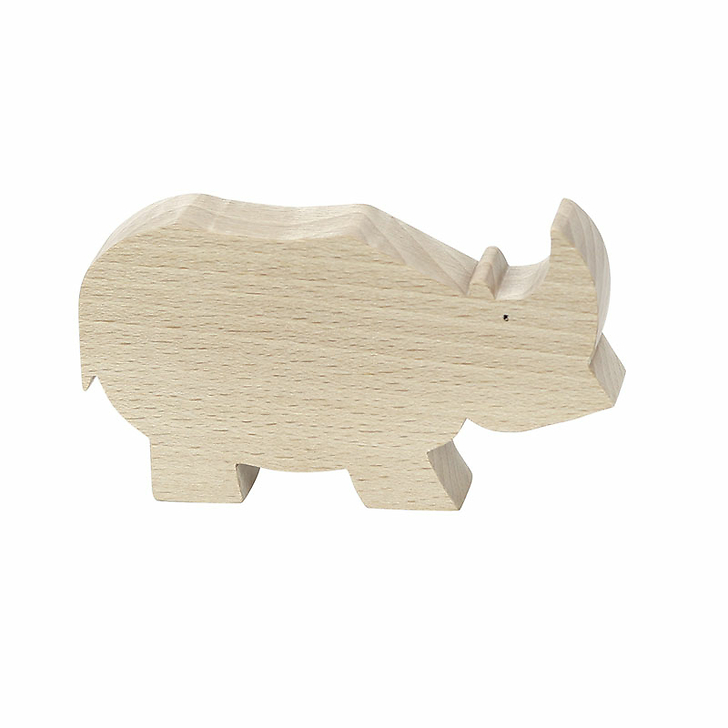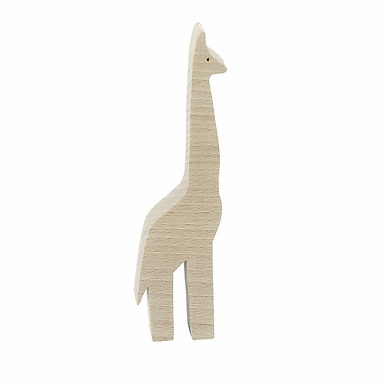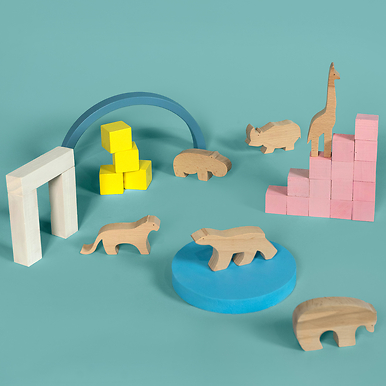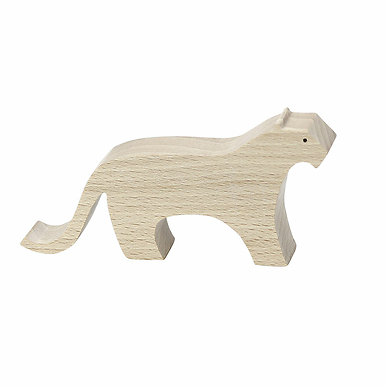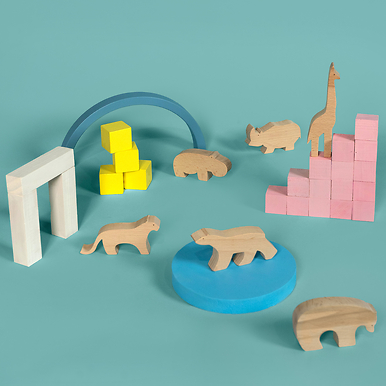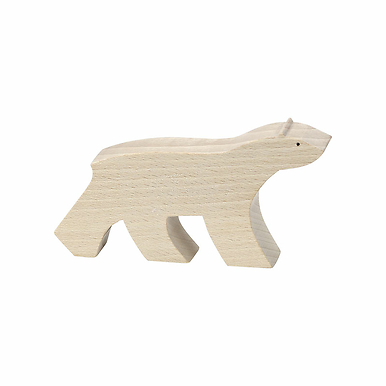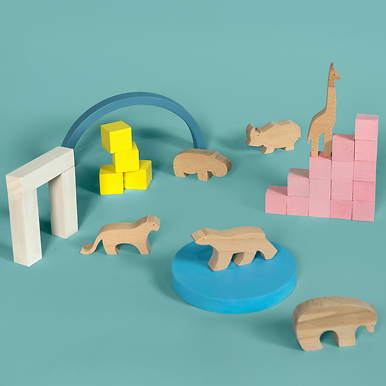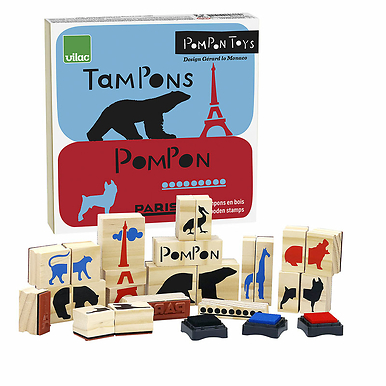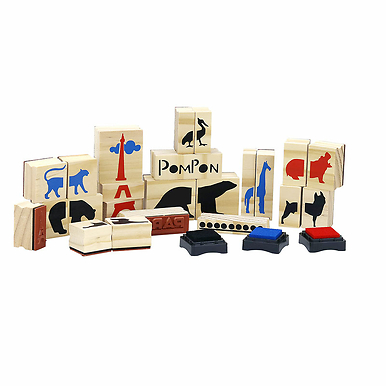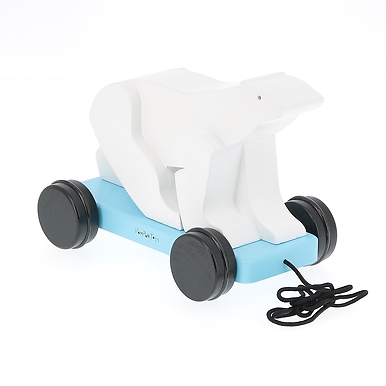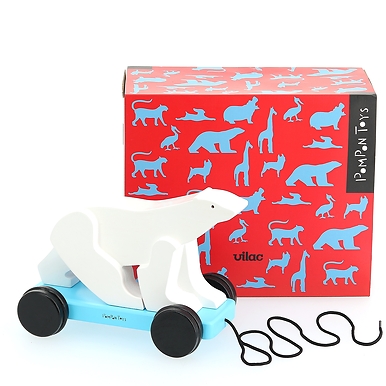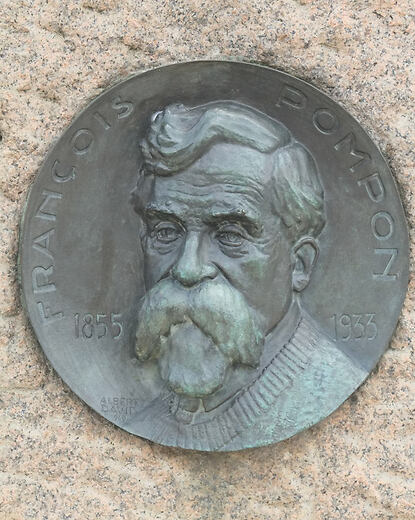Wooden Figurine François Pompon - Rhinoceros, Pompon Toys
CJ700030
This wooden figurine is inspired by François Pompon's Rhinoceros.
Recommended for children aged 2 and over.
With his small portable workbench, the sculptor François Pompon (1855-1933) liked to walk around the Jardin des Plantes in Paris. There he could observe animals and make small sketches. Back...
Read more
This wooden figurine is inspired by François Pompon's Rhinoceros.
Recommended for children aged 2 and over.
With his small portable workbench, the sculptor François Pompon (1855-1933) liked to walk around the Jardin des Plantes in Paris. There he could observe animals and make small sketches. Back in his studio, he sculpted bears, panthers, but also dogs, chickens and rabbits, simplifying the forms to find the very essence of each animal. Thus, before the eyes of visitors to the Musée d'Orsay, where many of these sculptures are kept, the animals come to life!
In collaboration with the Rmn-Grand Palais and the Musée d'Orsay, the artist Gérard Lo Monaco has created the "Pompon Toys" collection. This collection, inspired by the sculptor François Pompon (1855-1933), a large number of whose works are kept at the Musée d'Orsay, is made up of wooden games and toys manufactured by VILAC, the French specialist in wooden toys for children. These six wooden figurines, "Pompon Toys", follow the pure lines of the sculptures of the artist Pompon.
Art director, graphic designer, author, illustrator, paper engineer, Gérard Lo Monaco is best known for his pop-up books. The Pompon Toys range is his first experience in toy design.
VILAC is the French online specialist in wooden toys and games for children.
Close
Sold by GrandPalaisRmn

